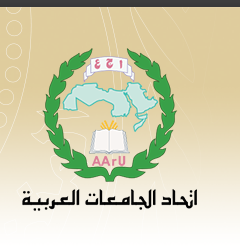Arab Journal of Administration المجلة العربية للإدارة
Article Title
Abstract
There is no doubt that the most troublest financial and banking crisis was the Southeast Asian countries' one, during the second half of year 1997 to 1998, which was followed by the global financial crisis at the United States, caused by banking sector, and that remarkably affected on the global economy. It become clear that the most important causes of such crises were the increasing of banking risks the banks encountered on one side, and bad management of such risks on the other side, in addition to the weakness of domestic and exterior supervision and decrease disclosure level of risks kind and size as well as its management techniques. The Egyptian banking sector has proved its success and advancement despite work difficulties, and tumble of the economy in Egypt in general, and the spread of corruption before the revolution of 25th January 2011. The banks were able to keep their assets, recorded important increasings in their assets, and there were variation in services and products it had presented to its customers. Now, the banks working in Egypt encounter a set of risks that are representd in: 1- Political and economic instability in Egypt. 2- Non-existence of supportive financial corporations such as: loan guarantees corporations and deposit insurance Corporations. 3- Increase the troubled debts at Egypt banks and the high value of allowances that are doubted to be collected, and that lead to withdrawal in the bank revenues. 4- High exchange rate of the dollar and other foreign currencies due to devaluation of the Egypt currency because of the financial and economic deterioration, from which Egypt suffers after 25 January revolution. 5- Lower credit rating after 25 January revolution due to deterioration of the economic status of Egypt. The importance of the research refers to the vital role played by the banking sector in the economic activity by recalling and mobilizing the national and foregin savings, then directing these monies to investment in aspects of economic activity, and sectors of national economy aiming for economic development. Therefore, it was clear that existence of a strong banking system will efficiently support its role in the monetary policy of the state. Due to crises that the banking system encounters from time to time including the financial crisis that Egypt encounters especially after 25 January revolution, the research will discuss the framework suggested by Basel Committee to deal with the new risks that the banking system encounters and that will include determining how far the capital is adequate according to Basel Accord in the banking system of Egypt to face the current economic crisis.
Recommended Citation
Abdel Kader, Haitham Mohamed Dr
(2016)
"Titrated implications of the Basel Committee on the Egyptian banking system In the aftermath of the Egyptian revolution,"
Arab Journal of Administration المجلة العربية للإدارة: Vol. 36
:
No.
2
, Article 4.
Available at:
https://digitalcommons.aaru.edu.jo/aja/vol36/iss2/4

